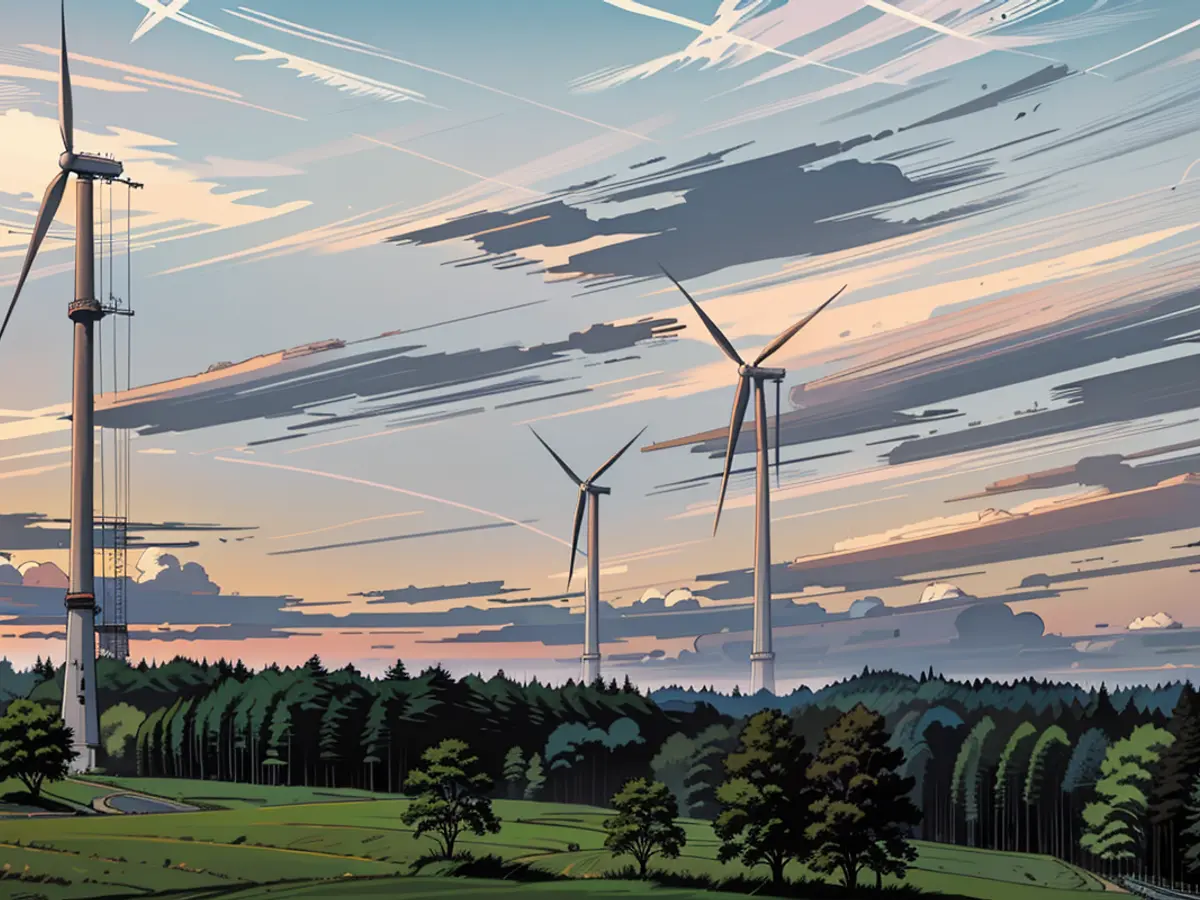- Competing Over Citizens' Energy Regulations: Green Parties vs. Government
Different political parties have proposed methods for the public to engage in renewable energy after the summer vacation. Following the Greens proposing their Citizens' Energy Act, Economics Minister Hubert Aiwanger (Free Voters) declared his intention to submit a similar bill to the cabinet shortly.
The Greens' proposal requires wind energy and open-field PV plant operators to generally participate with the local municipality. The specific manner of public involvement - like becoming a cooperative shareholder or participating through cost-saving electricity pricing schemes - would depend on local conditions and possibilities, according to Green energy spokesperson Martin Stümpfig.
The last-minute proposal for a wind farm in the Altoetting region highlighted the importance of proper public involvement. For years, the state government had denounced wind energy as unnecessary, criticized Katharina Habersbrunner from the Bündnis Bürgerenergie union. However, a massive project was suddenly imposed without prior consultation. "There were numerous mistakes made," she declared.
Aiwanger disapproves of the Greens' proposal
Economics Minister Hubert Aiwanger presented his alternative plan, criticizing the Greens' proposal as inadequate. "Only the host municipalities should financially contribute to wind turbines. That's too narrow-minded, as modern installations, including rotor blades, exceed 200 meters in height and are visible from long distances," the minister insisted.
Besides the Greens and Aiwanger, State President Markus Söder (CSU) has expressed support for increased wind energy use, even in citizen-owned hands, after years of skepticism. The government is under pressure from municipalities regarding this issue. Recently, over 400 mayors sent a formal appeal to the Munich government to promote renewable energy expansion and municipal involvement more aggressively. The mayors see both energy-related and economic opportunities for their communities in this.
The state also plans to promote the construction of solar plants along existing roads, offering more than 2,000 hectares of leased land for that purpose. Approximately 30,000 suitable locations for PV plants exist on Germany's federal and state roads in Bavaria. With a yield of 2.5 terawatt hours per year, these plants could provide electricity to around 700,000 single-family homes. The suitable areas will be listed on the Solar Area Exchange of the Energy Atlas Bavaria for future leasing.
Bavarian Minister of Construction and Transport Christian Bernreiter (CSU) commented, "Construction along traffic arteries is already established, so the necessary environmental impact and landscape modifications are minimal." Moreover, no new land will be claimed. The dataset contains areas adjacent to the 5,800 kilometers of federal and 14,300 kilometers of state roads in Bavaria, as well as over 400 noise barriers.
Aiwanger believes that the Greens' proposal for wind energy operators to financially contribute to wind turbines is too restrictive, given the height of modern installations. The state government is considering promoting solar plants along existing roads to provide electricity to numerous households, minimizing environmental impact and requiring no new land.








